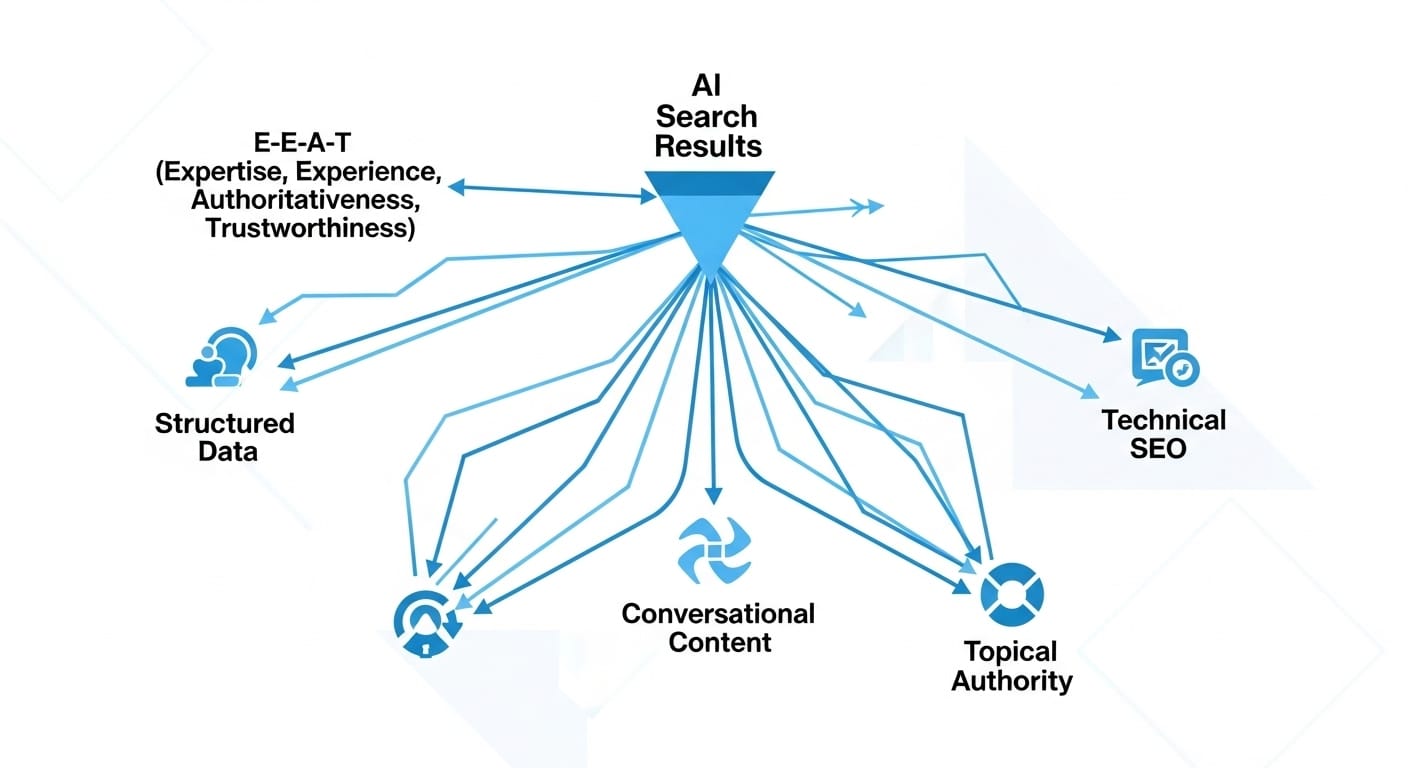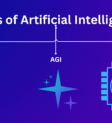Generative Engine Optimization (GEO): The Future of AI Search
The digital marketing landscape is in constant flux, but few shifts have been as profound as the emergence of generative artificial intelligence (AI) in search. This evolution has given rise to a new discipline: Generative Engine Optimization (GEO). While traditional Search Engine Optimization (SEO) remains vital, GEO represents a critical adaptation for businesses aiming to maintain visibility and influence in an increasingly AI-driven world.
Understanding Generative Engine Optimization (GEO)
Generative Engine Optimization (GEO) is the strategic process of optimizing web content to ensure its proper display, citation, and inclusion within AI-driven search engines and large language models (LLMs) such as Google AI Overviews (formerly SGE), ChatGPT, Gemini, and Copilot. Unlike conventional SEO, which primarily focuses on ranking web pages in a list of links, GEO aims for content to be directly recognized, synthesized, and presented within AI-generated responses.
The fundamental difference lies in the output. Traditional search engines provide a list of links for users to explore. Generative AI, however, processes vast amounts of information to deliver concise, conversational, and often comprehensive answers directly to the user. This means that for content to be “visible” in the age of AI, it must be structured and crafted in a way that AI models can easily interpret, understand, and cite as an authoritative source.
GEO vs. Traditional SEO: A Complementary Relationship
It is crucial to understand that GEO is not replacing SEO; rather, it complements and extends it. While SEO continues to drive organic traffic through ranking signals like keywords, backlinks, and site performance, GEO focuses on the quality, structure, and contextual relevance that AI models prioritize. Both strategies are essential for a holistic digital presence.
Consider the shift in user behavior. Many are now turning to generative engines for direct answers, bypassing the need to click through multiple links. This phenomenon, often referred to as “zero-click searches,” necessitates a new approach to optimization. For a business, this means that even if a user doesn’t visit their website, their brand’s content can still be surfaced and cited within an AI-generated response, enhancing brand awareness and authority.
To thrive in this evolving landscape, marketers must adapt. Optimizing for GEO means ensuring your content is not just discoverable by traditional crawlers but also interpretable and trustworthy for sophisticated AI algorithms. This involves focusing on factual clarity, comprehensive coverage, and a user-centric approach that anticipates conversational queries. The latest AI innovations transforming digital marketing underscore this imperative, highlighting how AI is reshaping every facet of online engagement.
Key Principles and Strategies for Effective GEO
Achieving success with Generative Engine Optimization requires a multi-faceted approach:
- High-Quality, Authoritative Content: AI models prioritize content that demonstrates Experience, Expertise, Authoritativeness, and Trustworthiness (E-E-A-T). Focus on producing unique, well-researched, and genuinely helpful content that solves user problems.
- Structured Data and Semantic Markup: Implement Schema.org markup and other structured data formats to provide explicit context about your content. This helps AI models better understand the entities, relationships, and facts presented on your pages. Utilize clear headings (H2s, H3s), bullet points, and concise paragraphs to make information easily parsable.
- Conversational Language and Direct Answers: Write content in a natural, conversational tone that anticipates user questions. Incorporate clear, direct answers within your text, making it easier for AI to extract and synthesize information for its responses. Optimizing for frequently asked questions (FAQs) within your content is a powerful GEO strategy.
- Topical Authority and Comprehensive Coverage: Build deep topical authority by creating comprehensive content clusters around specific subjects. This signals to AI that your site is a go-to resource for detailed information, increasing the likelihood of your content being cited.
- Technical SEO Foundations: A technically sound website is crucial for both human users and AI crawlers. Ensure fast loading speeds, mobile-friendliness, clean HTML, and proper internal linking. These elements facilitate AI’s ability to crawl, index, and understand your content efficiently. For a deeper dive into how AI is reshaping underlying systems, consider the impact of AI in SaaS and the future of business technology.
- Monitor AI Mentions and Brand Perception: Track how your brand and content are being referenced in AI-generated responses. This provides valuable insights into your GEO effectiveness and helps identify areas for improvement.

The Future of Search and Your Business
The rise of generative AI in search represents a paradigm shift, transforming search engines from mere information retrieval systems into knowledge-generation tools. This evolution, exemplified by Google’s Search Generative Experience (SGE), means that businesses must rethink their content strategies to remain visible and relevant. Google SGE aims to provide quick, clear overviews of search topics, often summarizing information from multiple sources without requiring users to click through.
As AI models become more sophisticated, understanding user intent and delivering highly relevant, personalized answers will become paramount. This new era demands a proactive approach to content creation and optimization. For businesses seeking to navigate these complexities and harness the power of AI for growth, embracing advanced strategies like GEO is no longer optional. It’s a necessity. If you’re looking to develop an agentic AI strategy for proactive problem-solving in your digital marketing, adapting to these changes is key.
At our core, we provide cutting-edge AI solutions, content marketing strategies, and technology consulting designed to help businesses innovate and grow in this dynamic landscape. By partnering with us, you can ensure your content resonates with both human audiences and the intelligent algorithms shaping the future of search.
Frequently Asked Questions
What is the main difference between SEO and GEO?
SEO focuses on optimizing content to rank high in traditional search engine results pages (SERPs), aiming to drive clicks to a website. GEO, on the other hand, optimizes content specifically for AI-driven search engines to ensure it is cited, summarized, or directly included in AI-generated answers and conversational responses.
Will GEO replace traditional SEO?
No, GEO is not replacing SEO. Instead, it is a complementary strategy. Traditional SEO practices remain crucial for overall web visibility and organic traffic, while GEO addresses the unique requirements of AI-powered search environments. A comprehensive digital strategy will integrate both.
What are the immediate steps businesses should take to implement GEO?
Businesses should start by auditing their existing content for clarity, conciseness, and factual accuracy. Implement structured data, optimize for conversational language, create comprehensive content around key topics, and ensure strong E-E-A-T signals. Regularly monitor how AI models interact with and reference your content.
How does AI-driven search impact organic traffic?
AI-driven search, particularly through features like Google AI Overviews, can lead to more “zero-click” searches where users get answers directly without visiting a website. This may shift how organic traffic is generated, emphasizing the importance of brand mentions and citations within AI responses, even if direct website clicks decrease for certain types of informational queries.



